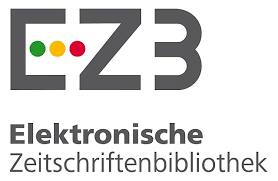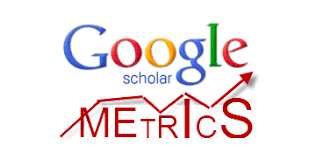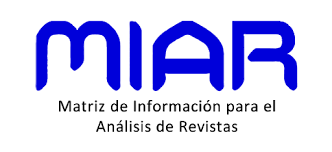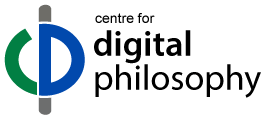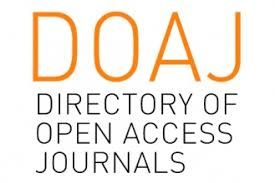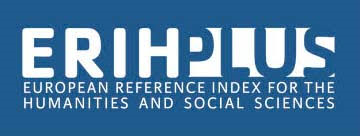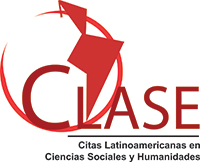Sobre a eficiência da ética como ferramenta de governança da inteligência artificial
DOI:
https://doi.org/10.15448/1984-6746.2022.1.42584Palavras-chave:
Diretrizes Éticas, Ética da Inteligência Artificial, Governança, Bioética, RegulamentaçãoResumo
A 4ª Revolução Industrial é o culminar da era digital. Atualmente, tecnologias como robótica, nanotecnologia, genética e inteligência artificial prometem transformar nosso mundo e a maneira como vivemos. O campo da Segurança e da Ética da Inteligência Artificial (IA) são áreas de pesquisa emergentes que vêm ganhando popularidade nos últimos anos. Diversas organizações de cunho privado, público e não governamentais têm publicado diretrizes propondo princípios éticos para a regulamentação do uso e desenvolvimento de sistemas inteligentes autônomos. Meta-análises do campo de pesquisa em Ética da IA apontam uma convergência sobre certos princípios éticos que, supostamente, governam a indústria da IA. Entretanto, pouco se sabe sobre a eficiência desta forma de “Ética”. Neste estudo, gostaríamos de realizar uma análise crítica do atual estado da Ética da IA, e sugerir que essa forma de governança baseada em diretrizes éticas principialista não é suficiente para normatizar a indústria da IA e seus desenvolvedores. Acreditamos que drásticas mudanças sejam necessárias, tanto nos processos de formação de profissionais das áreas ligadas ao desenvolvimento de software e sistemas inteligentes quanto no aumento da regulamentação desses profissionais e sua indústria. Para tanto, sugerimos que o Direito se beneficie das contribuições recentes da Bioética, de forma a explicitar em termos legais as contribuições da Ética da IA para a governança.
Downloads
Referências
BEVIR, M. Governance: A Very Short Introduction. UK, Oxford: OUP Oxford, 2012. DOI: https://doi.org/10.1093/actrade/9780199606412.001.0001
BODDINGTON, P. Towards a code of ethics for artificial intelligence. Springer International Publishing, Cham, Switzerland 2017. https://doi.org/10.1007/978-3-319-60648-4. DOI: https://doi.org/10.1007/978-3-319-60648-4
BODENHEIMER, T.; JONSEN, A. A Short History of Medical Ethics. Journal of Public Health Policy, Basingstoke, UK, v. 22, n. 2, p. 247-249, 2001. https://doi.org/10.2307/3343467. DOI: https://doi.org/10.2307/3343467
BRIEF, A. P.; DUKERICH, J. M.; BROWN, P. R.; BRETT, J. F. What’s wrong with the treadway commission report? Experimental analyses of the effects of personal values and codes of conduct on fraudulent financial reporting. Journal of Business Ethics, Charlottesville, Virginia, v. 15, n. 2, p. 183-198, 1996. https://doi.org/10.1007/BF00705586. DOI: https://doi.org/10.1007/BF00705586
BYNUM, T. Flourishing ethics. Ethics Inf. Technol, [S. I.], v. 8, n. 4, p. 157-173, 2006. DOI: https://doi.org/10.1007/s10676-006-9107-1
CALO, R. Artificial intelligence policy: a primer and roadmap. SSRN Journal, [S. I.], v. 51, p. 399-435, 2017. https://doi.org/10.2139/ssrn.3015350. DOI: https://doi.org/10.2139/ssrn.3015350
CLEEK, M. A.; Leonard, S. L. Can corporate codes of ethics influence behavior? Journal of Business Ethics, [S. l.], v. 17, n. 6, p. 619-630, 1998. https://doi.org/10.1023/A:1017969921581. DOI: https://doi.org/10.1023/A:1017969921581
CORRÊA, N. K.; DE OLIVEIRA, N. F. Good AI for the Present of Humanity Democratizing AI Governance. AI Ethics Journal, [S. l.], v. 2, n. 2, p. 1-16, 2021. https://doi.org/10.47289/AIEJ20210716-2. DOI: https://doi.org/10.47289/AIEJ20210716-2
DANIELS, N. Just Health Care. New York: Cambridge University Press, 1985. DOI: https://doi.org/10.1017/CBO9780511624971
DAVIS, J.; NATHAN, L.P. Value sensitive design: applications, adaptations, and critiques. In: VAN DEN HOVEN, J.; VERMAAS, P. E.; VAN DE POEL, I. (ed.). Handbook of Ethics, Values, and Technological Design: Sources, Theory, Values and Application Domains. Dordrecht: Springer, 2015. p. 1-40. DOI: https://doi.org/10.1007/978-94-007-6970-0_3
FLORIDI, L.; COWLS, J.; BELTRAMETTI, M. et al. AI4People – An Ethical Framework for a Good AI Society: Opportunities, Risks, Principles, and Recommendations. Minds & Machines, Dordrecht, NE, v. 28, p. 689-707, 2018. https://doi.org/10.1007/s11023-018-9482-5. DOI: https://doi.org/10.1007/s11023-018-9482-5
FRAZÃO, A.; MULHOLLAND, C. (org.). Inteligência Artificial e Direito. 2. ed. São Paulo: Thomson Reuters Brasil, 2020.
FREITAS, J.; FREITAS, T. Direito e inteligência artificial: Em defesa do humano. Belo Horizonte: Editora Fórum, 2020.
FRIEDMAN, B.; KAHN, P.H.; BORNING, A.; HULDTGREN, A. Value sensitive design and information systems. In: Early engagement and new technologies: opening up the laboratory. Berlin: Springer, 2013. p. 55–95. DOI: https://doi.org/10.1007/978-94-007-7844-3_4
GLANNON, W. Neuroethics. Bioethics, Oxford, UK, v. 20, n. 1, p. 37-52, 2006. DOI: https://doi.org/10.1111/j.1467-8519.2006.00474.x
GOERTZEL, K. M. Legal liability for bad software. CrossTalk, Force Base, Utah v. 29, n. 5, p. 23-28, 2016.
GOLDSMITH, J.; Burton A, E. Why teaching ethics to AI practitioners is important. In: AAAI CONFERENCE ON ARTIFICIAL INTELLIGENCE, 31., 2017. Proceedings […]. [S. l.]: AAAI-17, 2017. p. 4863-4840, 2017. Disponível em: https://www.aaai.org/ocs/index.php/AAAI/AAAI17/paper/view/14271/13992. Acesso em: 9 jan. 2022.
GREENE, D.; HOFMANR, A. L.; STARK, L. Better, nicer, clearer, fairer: A critical assessment of the movement for ethical artifcial intelligence and machine learning. In: HAWAII INTERNATIONAL CONFERENCE ON SYSTEM SCIENCES, 52., 2019. Proceedings […]. [S. l.]: HICCL, 2019. p. 2122-2131. https://doi.org/10.24251/HICSS.2019.258. DOI: https://doi.org/10.24251/HICSS.2019.258
HAGENDORFF, T. The Ethics of AI Ethics: An Evaluation of Guidelines. Minds and Machines, Dordrecht, NE, v. 30, p. 99-120, 2020. https://doi.org/10.1007/s11023-020-09526-7. DOI: https://doi.org/10.1007/s11023-020-09517-8
JOBIN, A.; IENCA, M.; VAYENA, E. The global landscape of AI ethics guidelines. Nat Mach Intell, [S. I.], n. 1, p. 389-399, 2019. https://doi.org/10.1038/s42256-019-0088-2. DOI: https://doi.org/10.1038/s42256-019-0088-2
LERE, J. C.; GAUMNITZ, B.R. The Impact of Codes of Ethics on Decision Making: Some Insights from Information Economics. Journal of Business Ethics, [S. I.], n. 48, p. 365-379, 2003. https://doi.org/10.1023/B:BUSI.0000005747.37500.c8. DOI: https://doi.org/10.1023/B:BUSI.0000005747.37500.c8
MCNAMARA, A.; SMITH, J.; MURPHY-HILL, E. Does ACM’s code of ethics change ethical decision making in software development? In: ESEC/FSE 2018: ACM JOINT MEETING ON EUROPEAN SOFTWARE ENGINEERING CONFERENCE AND SYMPOSIUM ON THE FOUNDATIONS OF SOFTWARE ENGINEERING, 26., 2018. Proceedings […]. [S. l.], ESEC/FSE, 2018. p. 729-733. https://doi.org/10.1145/3236024.3264833. DOI: https://doi.org/10.1145/3236024.3264833
MITTELSTADT, B. Principles alone cannot guarantee ethical AI. Nat Mach Intell, [S. I.], n. 1, p. 501-507, 2019. https://doi.org/10.1038/s42256-019-0114-4. DOI: https://doi.org/10.1038/s42256-019-0114-4
MORLEY, J.; et al. From what to how: an initial review of publicly available AI ethics tools, methods and research to translate principles into practices. In: ArXiv. [S. l.], 2019. Disponível em: https://arxiv.org/abs/1703.04741. Acesso em: 9 jan. 2022. DOI: https://doi.org/10.2139/ssrn.3830348
OSBORN, M.; DAY, R.; KOMESAROFF, P.; MANT, A. Do ethical Guidelines make a difference to decision-making? Internal medicine journal, [S. I.], v. 39, n. 12, p. 800-805, 2009. https://doi.org/10.1111/j.1445-5994.2009.01954.x. DOI: https://doi.org/10.1111/j.1445-5994.2009.01954.x
RESSÉGUIER, A.; RODRIGUES, R. AI ethics should not remain toothless! A call to bring back the teeth of ethics. Big Data & Society, Waterford, Ireland, v. 7, n. 2, p. 1-5, 2020. https://doi.org/10.1177/2053951720942541. DOI: https://doi.org/10.1177/2053951720942541
ROSKIES, A. Neuroethics. In: ZALTA, Edward N. (ed.). The Stanford Encyclopedia of Philosophy. [S. l.], 2021. (Spring 2021 Edition) Disponível em: https://plato.stanford.edu/archives/spr2021/entries/neuroethics. Acesso em: 9 Jan 2022
RUSSELL, Stuart J.; NORVIG, Peter. Artificial Intelligence: A Modern Approach. 4. ed. London: Pearson, 2022.
RUSSELL, S.; DEWEY, D.; TEGMARK, M. An Open Letter: Research Priorities for Robust and Beneficial Artificial Intelligence. Open Letter. Signed by 8,600 people. In: Future Online. [S. l.], 2015. Disponível em: https://futureoflife.org/data/documents/research_priorities.pdf. Acesso em: 9 jan. 2022.
SANTIAGO, N. SHERPA Delphi Study – Round 1 Results [Project Deliverable]. SHERPA project, 2020. Disponível em: https://www.project-sherpa.eu/wp-content/uploads/2020/03/sherpa-delphi-study-round-1-summary-17.03.2020.docx.pdf. Acesso em: 9 jan. 2022.
SCULLEY, D. et al. Hidden technical debt in machine learning systems. Adv. Neural Inf. Process. Syst, [S. I.], n. 2, p. 2503-2511, 2015.
SEARLE, J. R. Minds, brains, and programs. The Behavioral and Brain Sciences, [S. I.], n. 3, p. 417-457, 1980. DOI: https://doi.org/10.1017/S0140525X00005756
SMITH, M. The Moral Problem. Oxford: Blackwell, 1994.
UNESCO. Recommendation on the ethics of artificial intelligence. 41st session of the General Conference of the United Nations Educational, Scientific and Cultural Organization (UNESCO). Paris, from 9 to 24 November, 2021. Disponível em: https://en.unesco.org/artificial-intelligence/ethics. Acesso em: 9 Jan 2022
IVAKKURI, V.; KEMELL, K. K.; JANTUNEN, M.; ABRAHAMSSON, P. “This is Just a Prototype”: How Ethics Are Ignored in Software Startup-Like Environments. In: STRAY, V.; HODA, R.; PAASIVAARA, M.; KRUCHTEN, P. (ed.). Agile Processes in Software Engineering and Extreme Programming. XP 2020. Lecture Notes in Business Information Processing, [S. I.], v. 383, p. 195-210, Springer: Cham, 2020. https://doi.org/10.1007/978-3-030-49392-9_13. DOI: https://doi.org/10.1007/978-3-030-49392-9_13
ZOLLERS, F. E.; MCMULLIN, A.; HURD, S. N.; SHEARS, P. No More Soft Landings for Software: Liability for Defects in an Industry That Has Come of Age. Santa Clara High Tech. L. J., [S. l.], v. 21, p. 745-782, 2005. Disponível em: https://digitalcommons.law.scu.edu/chtlj/vol21/iss4/4. Acesso em: 9 jan. 2022.
Downloads
Publicado
Como Citar
Edição
Seção
Licença
Copyright (c) 2022 Veritas (Porto Alegre)

Este trabalho está licenciado sob uma licença Creative Commons Attribution 4.0 International License.
Direitos Autorais
A submissão de originais para a Revista Veritas implica na transferência, pelos autores, dos direitos de publicação. Os direitos autorais para os artigos publicados nesta revista são do autor, com direitos da revista sobre a primeira publicação. Os autores somente poderão utilizar os mesmos resultados em outras publicações indicando claramente a Revista Veritas como o meio da publicação original.
Licença Creative Commons
Exceto onde especificado diferentemente, aplicam-se à matéria publicada neste periódico os termos de uma licença Creative Commons Atribuição 4.0 Internacional, que permite o uso irrestrito, a distribuição e a reprodução em qualquer meio desde que a publicação original seja corretamente citada. Copyright: © 2006-2020 EDIPUCRS





